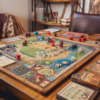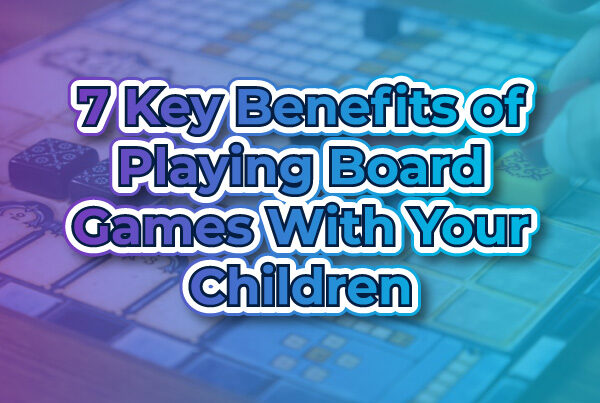In the gaming world, we often hear about tabletop games and board games. They might sound the same, but there’s a difference. Let’s break it down.
What Are Tabletop Games?
Tabletop games serve as an overarching category that encompasses various types of games played on a flat surface. This broad term includes board games, card games, miniature wargames, and role-playing games (RPGs). The defining feature of tabletop games is that they involve physical components, such as cards, dice, tokens, miniatures, and rulebooks, and are typically played on a table or other flat surface.
What Are Board Games?
Board games, on the other hand, constitute a subset of tabletop games that specifically involve a game board as a central component. These boards can come in various forms, from simple grids to intricate designs featuring thematic elements. Monopoly, Settlers of Catan, and Carcassonne are classic examples of board games that utilize a centralized board to create the game’s playing field.
Distinguishing Differences
-
Components:
- Tabletop Games: Encompass a wide range of games with diverse components, including cards, dice, miniatures, and rulebooks.
- Board Games: Primarily revolve around a game board, which serves as a focal point for gameplay, often accompanied by cards, tokens, and dice.
-
Gameplay Focus:
- Tabletop Games: Emphasize the overall gaming experience, including narrative elements, player interactions, and strategic decision-making.
- Board Games: Often place a significant emphasis on the mechanics of the game board, with players interacting directly with the board’s features and components.
-
Variety and Subgenres:
- Tabletop Games: Include a diverse array of subgenres, such as card games, role-playing games, and miniature wargames, offering a broad spectrum of gaming experiences.
- Board Games: Have their own subgenres, ranging from Eurogames with a focus on strategy to thematic games that immerse players in a specific narrative or setting.
-
Accessibility:
- Tabletop Games: Vary widely in complexity, with some games suitable for casual players and others designed for dedicated enthusiasts.
- Board Games: Offer a spectrum of complexity but are often designed with accessibility in mind, making them suitable for a broader audience.
In the world of analog gaming, understanding the distinction between tabletop games and board games can deepen your appreciation for the diversity within this realm. Whether you’re drawn to the strategic depth of board games or the immersive storytelling of tabletop games, there’s a vast landscape waiting to be explored. So, gather your friends, clear the table, and embark on a gaming adventure that suits your preferences and play style.























